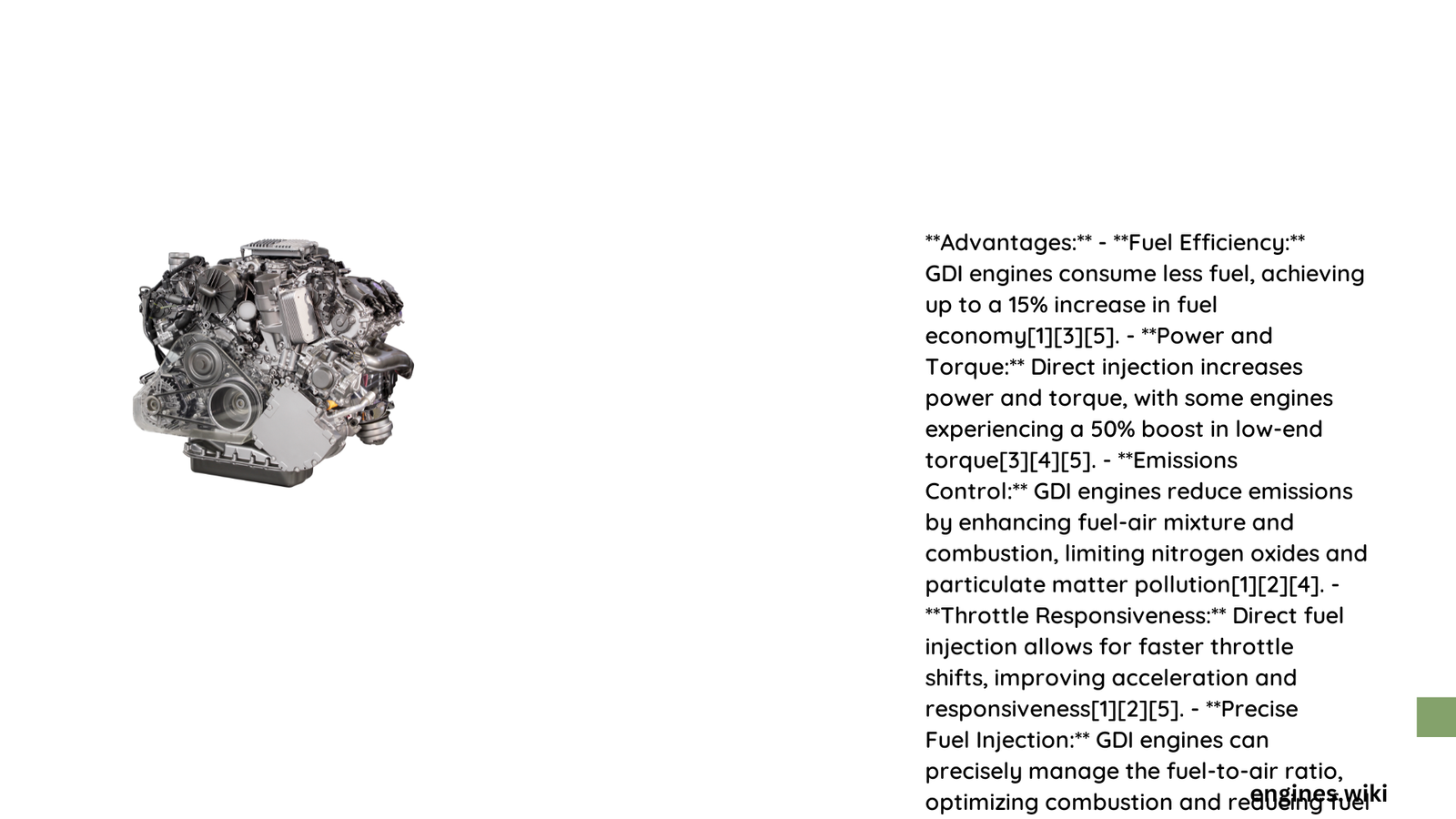Gasoline Direct Injection (GDI) engines represent a revolutionary automotive technology that transforms fuel delivery and combustion processes. These advanced engines offer significant improvements in fuel efficiency, performance, and emissions control, while simultaneously presenting unique maintenance challenges and potential long-term reliability concerns. Understanding the nuanced advantages and disadvantages of GDI technology is crucial for automotive enthusiasts, engineers, and consumers seeking optimal vehicle performance and economic efficiency.
What Makes GDI Engines Unique?
GDI engines distinguish themselves through a precise fuel injection mechanism that delivers fuel directly into the combustion chamber, unlike traditional port fuel injection systems. This innovative approach enables more controlled and efficient fuel combustion, resulting in multiple performance and efficiency benefits.
How Do Performance Metrics Compare?
| Performance Metric | GDI Engine | Traditional PFI Engine |
|---|---|---|
| Fuel Economy | 15-20% Improvement | Standard Efficiency |
| Power Output | Higher Torque | Lower Torque |
| Throttle Response | Faster | Slower |
| Emission Control | More Precise | Less Controlled |
What Are the Primary Advantages?

Enhanced Fuel Efficiency
- Achieves 15-20% improved fuel economy
- Reduces overall fuel consumption
- Enables more kilometers per liter of fuel
Superior Power Generation
- Delivers more precise fuel-air mixture
- Increases low-end torque by approximately 50%
- Provides faster acceleration response
Advanced Emission Control
- Reduces nitrogen oxide emissions
- Minimizes particulate matter production
- Complies with stringent environmental regulations
What Challenges Do GDI Engines Present?
Complex Maintenance Requirements
- Higher probability of carbon buildup
- Requires specialized cleaning procedures
- Increased maintenance costs compared to traditional engines
Potential Reliability Concerns
- Sensitive to fuel quality
- More intricate fuel system components
- Higher risk of injector blockages
How Should Owners Manage GDI Engine Maintenance?
Recommended Maintenance Strategies
- Use high-quality fuel consistently
- Perform regular carbon cleaning (every 30,000-50,000 miles)
- Monitor fuel injector performance
- Use manufacturer-recommended service intervals
What Technical Considerations Matter?
Economic Implications
- Higher initial production costs
- Potential long-term fuel savings
- Increased complexity in manufacturing
Technological Trade-offs
- Precision engineering requirements
- Advanced computational control systems
- Continuous technological refinement
What Future Developments Are Anticipated?
Emerging Technological Trends
- Further fuel efficiency improvements
- Enhanced emission control mechanisms
- Integration with hybrid and electric technologies
Research and Development Focus
- Reducing carbon buildup challenges
- Improving injector durability
- Optimizing combustion chamber design
Conclusion
GDI engines represent a significant technological advancement in automotive engineering, offering compelling advantages while presenting nuanced challenges. Consumers and automotive professionals must carefully evaluate these factors to make informed decisions about vehicle selection and maintenance.
Key Takeaways
- Superior fuel efficiency
- Enhanced performance characteristics
- Requires specialized maintenance
- Promising future technological potential
Reference:
– CarTrust: GDI Engines Overview
– Automotive Engineering Journal
– Modern Vehicle Technology Research
